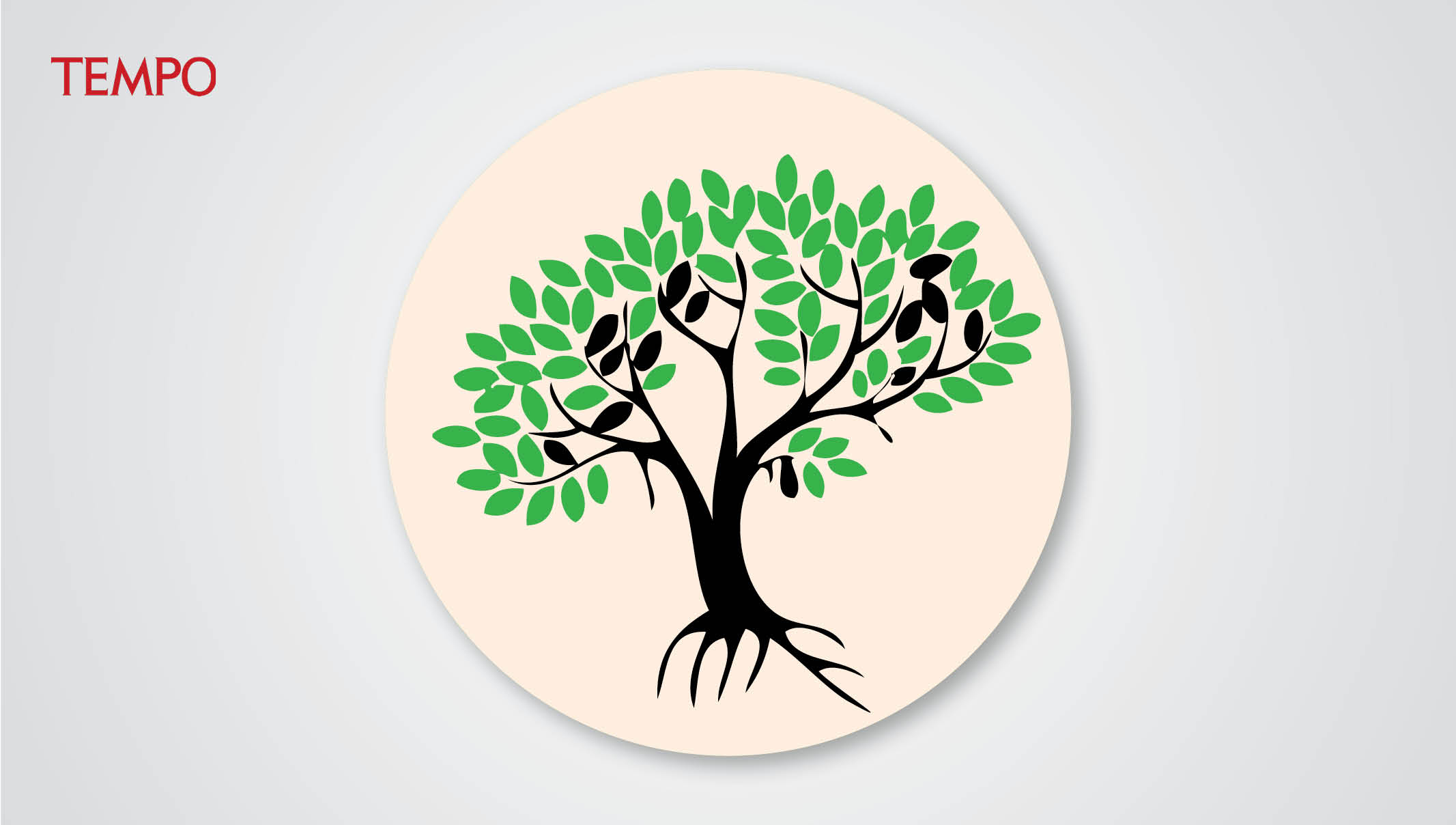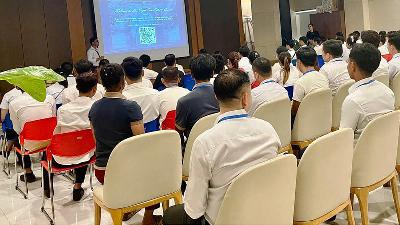Paying Off Our Mangrove
Monday, August 12, 2024
The working period of the Peatland and Mangrove Rehabilitation Agency should be extended in order to rehabilitate the severely damaged mangrove forests.
arsip tempo : 174558801190.

THE minimal achievements in mangrove rehabilitation by the Peatland and Mangrove Rehabilitation Agency (BRGM) should be a reason to consider the proposal to extend the tenure of the ad hoc body. But mangrove rehabilitation cannot be done in just a short time, it requires a sustained effort.
It will not be possible to rehabilitate 600,000 hectares of mangrove in four years, as targeted by President Joko Widodo. Just look at the facts. From 2021 to 2024, only 78,828 hectares were rehabilitated, or 13.14 percent of Jokowi’s target.
Following up on the proposal made by BRGM Chief Hartono Prawiraatmadja at the end of July, Environment and Forestry Minister Siti Nurbaya Bakar recommended to the President a 10-year extension of the agency’s working period. This recommended extension is part of the endeavor to smooth the way for the draft government regulation on the protection and management of the mangrove ecosystem, which is currently awaiting the President’s signature.
This regulation would give the Environment and Forestry Ministry the authority to take over the management of 3.44 million hectares of mangrove forests. At present, the ministry only has the authority to manage 2.7 million hectares. Meanwhile, another 733,489 hectares are managed by regional governments, the Maritime Affairs and Fisheries Ministry and the Agrarian Affairs and Spatial Planning Ministry.
The BRGM is right to not make a fuss over the management of mangrove forests. In line with the provisions of the Environmental Protection and Management Law, the BRGM focuses on rehabilitation of mangrove ecosystems and restoration of damaged peatland, not arguing over who manages them.
As well as trying to extend its tenure, the BRGM should also try to expand its mandate. At present, according to Presidential Regulation No. 120/2020, the BRGM is tasked with rehabilitating mangrove in just nine provinces. In the future, it plans to work on potential mangrove habitats in 38 provinces, including mangrove areas that have been damaged by changes in land use or sea erosion.
Also important is that mangrove management must be integrated and focused on the ultimate aim of rehabilitation and restoration, namely mitigation of the climate crisis. Mangrove forests and peatlands are able to absorb more carbon dioxide (CO2) than any other terrestrial ecosystems. Restoration of peatlands and rehabilitation of mangrove forests might mean that the target of absorbing 42 percent, or 2.87 equivalent tons of CO2 by 2030 is achieved.
Therefore, the mandate of the BGRM needs to be expanded, and not limited to forest regions where its authority overlaps that of the Environment and Forestry Ministry. The government needs to determine the area of peatland and mangrove that needs to be rehabilitated in line with the need to mitigate the climate crisis. And the standing of the agency needs to be strengthened to make it a non-ministerial government body like the Meteorology, Climatology and Geophysics Agency and the National Disaster Mitigation Agency.
The strengthening of the BGRM should be particularly in relation to monitoring, coordination and supervision of mangrove rehabilitation and peatland restoration. This way, there will be a better chance of preventing the total destruction of mangroves and peatlands. Improvements to these two ecosystems will also show that Indonesia is serious about climate change mitigation.











